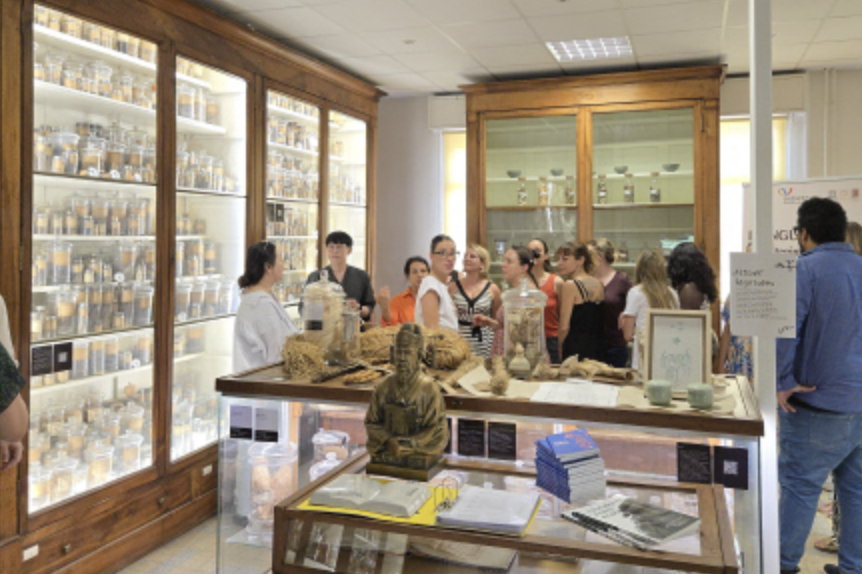Ginseng (Panax ginseng), long revered in traditional East Asian medicine, is increasingly recognized in modern science as a natural adaptogen with notable anti-depressant and stress-reducing effects. Adaptogens are substances that help the body resist physical, emotional, and environmental stress. Among them, ginseng has emerged as one of the most studied and trusted natural remedies.
👉 Experience the Power of Ginseng Extract Today
Recent findings—supported by data from reputable sources such as Wikipedia, clinical trials, and preclinical research—reveal how ginsenosides, the key active compounds in ginseng, interact with neurochemical systems to regulate mood, reduce anxiety, and improve mental resilience.
🧠 1. How Ginseng Reduces Depression and Anxiety
The anti-depressant effect of ginseng has been linked to its ability to modulate the hypothalamic–pituitary–adrenal (HPA) axis, the brain’s stress response system. Chronic stress dysregulates this axis, leading to elevated cortisol levels, emotional instability, and eventually depression. Ginseng’s active compounds—especially ginsenoside Rg1 and Rb1—help normalize this stress-response feedback loop.
Key Biological Actions:
Inhibition of HPA Axis Overactivation: Ginseng reduces serum corticosterone and ACTH levels.
Serotonin and Dopamine Regulation: Boosts the synthesis and signaling of serotonin (5-HT) and dopamine, essential neurotransmitters for mood balance.
Neurogenesis Support: Promotes brain-derived neurotrophic factor (BDNF) expression in the hippocampus—critical for resilience against depression.
Anti-inflammatory Modulation: Reduces neuroinflammation by suppressing cytokines such as TNF-α, IL-6, and IL-1β.
🧪 2. Clinical and Preclinical Evidence
Animal Studies
In rodent models of depression, ginsenoside Rg1 showed significant antidepressant-like effects in forced swim and tail suspension tests. Rg1 restored hippocampal BDNF levels and normalized the serotonergic system.
Rb1-treated mice showed reduced immobility and improved exploratory behavior, associated with increased hippocampal neurogenesis and reduced oxidative stress.
Human Trials
In a double-blind, placebo-controlled study, Korean Red Ginseng (KRG) taken over 8 weeks significantly improved mental fatigue, sleep quality, and subjective well-being in patients with mild stress and depressive symptoms.
Another pilot study demonstrated ginseng’s efficacy in enhancing mood and vitality in individuals under high occupational stress, without causing sedation or dependence.
🧬 3. Molecular Pathways Involved
Ginsenosides act on multiple cellular signaling cascades:
PI3K/Akt Pathway: Involved in neuroplasticity and cell survival; ginseng activates this pathway to protect against neurodegeneration.
CREB/BDNF Activation: Supports memory, emotional regulation, and hippocampal function.
Nrf2/HO-1 Pathway: Enhances antioxidant defense and reduces oxidative damage in brain cells.
NF-κB Inhibition: Mitigates neuroinflammatory responses linked to chronic stress and mood disorders.
These multi-target mechanisms make ginseng uniquely effective in supporting both the physical and emotional components of stress.
🌿 4. Benefits of Long-Term Ginseng Use
Consistent daily consumption of ginseng may lead to cumulative benefits, including:
Enhanced mental clarity and emotional stability
Reduced fatigue, brain fog, and burnout
Improved sleep patterns and stress resilience
Strengthened adrenal balance and immune function
Processed forms like Korean Red Ginseng are especially potent, as they contain higher concentrations of ginsenosides such as Rg3 and compound K, which are known to cross the blood-brain barrier more effectively.
🧠 5. Safety and Dosage
Multiple studies confirm that ginseng is well tolerated when used long-term at standard doses (1–3 grams/day of extract or 200–400 mg of standardized ginsenosides). No dependency or withdrawal symptoms have been reported.
People with high levels of chronic stress, irregular sleep, or mild depressive symptoms may benefit from adding ginseng to their wellness routine—especially in combination with lifestyle modifications like exercise, mindfulness, and a balanced diet.
✅ Conclusion: Ginseng as a Natural Mood Stabilizer
Ginseng is no longer just a traditional remedy—it is a scientifically backed, natural solution for stress and depression relief. Through its interaction with neurotransmitters, stress hormones, and neurotrophic pathways, ginseng provides a holistic mood-enhancing effect without the side effects of synthetic medications.
For those seeking emotional balance and long-term mental resilience, ginseng offers a safe, adaptogenic approach grounded in both tradition and modern neuroscience.









